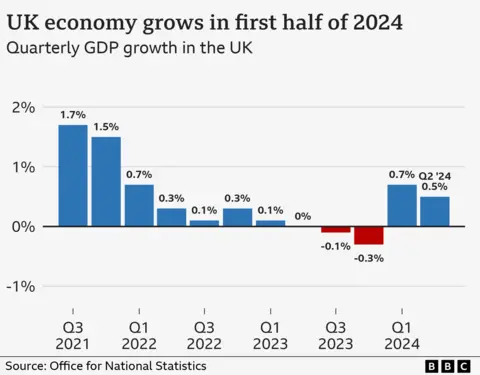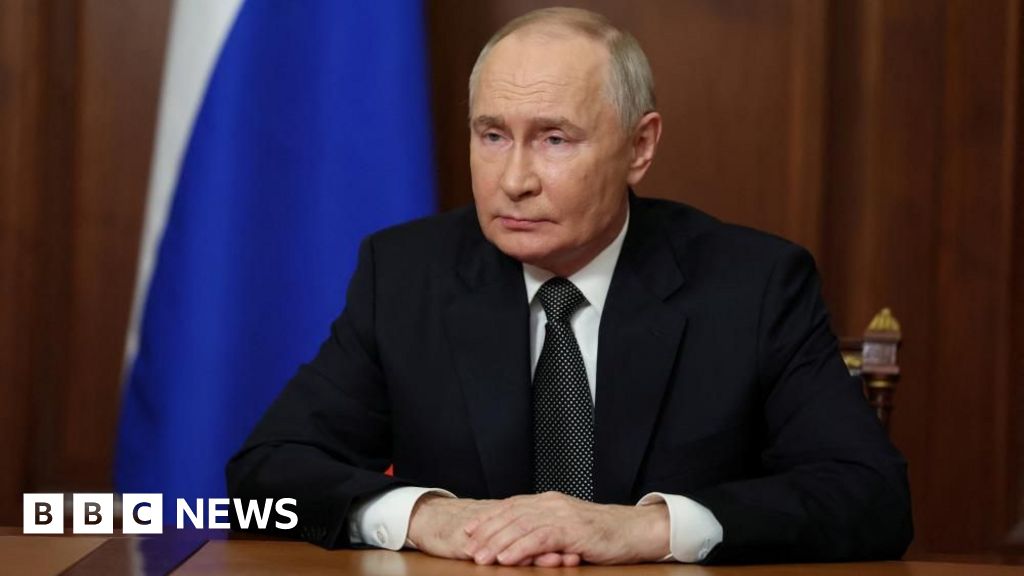World
UK economy grew less than thought in spring

 Getty Images
Getty ImagesThe UK’s economy grew by less than previously estimated between April and June, according to official figures.
It expanded by 0.5%, down from an initial reading of 0.6%, after output in the manufacturing and construction sectors fell by more than first thought.
The data has emerged as the Labour government, which has made economic growth one of its key policies, prepares to announce its first Budget in four weeks’ time.
Labour has been criticised for its gloomy outlook with Prime Minister Sir Keir Starmer having warned that the Budget will be “painful”, but Chancellor Rachel Reeves recently attempted to strike a more upbeat note, saying that Britain’s “best days lie ahead”.
Paul Dales, chief UK economist at Capital Economics, said the downward revision “shouldn’t make the Bank of England worry too much about the economy running out of momentum”.
The latest growth figures are not expected to lead to significant changes by the Office for Budget Responsibility, which is preparing forecasts for next month’s Budget.
The independent forecaster monitors the government’s spending plans and performance and publishes its projections at the same time as the government outlines its Budget.
The Office for National Statistics (ONS), which published the figures, said the production of transport and related equipment tumbled by 3.1% between April and June after a long period of growth.
It was first estimated to have fallen by 0.7%.
The ONS said there was evidence to suggest that car manufacturers had cut output while they prepare for the shift to making electric cars.

Construction also dropped due to a continuing decline in building new homes. However, the ONS said there were some signs this was beginning to ease.
Mr Dales said that while the downward revision was not a major cause for concern, “it may add to the Bank’s view that interest rates need to be reduced further.”
The Bank of England cut interest rates for the first time in nearly four years in August, to 5% from 5.25% as inflation has cooled.
The ONS revised up economic growth for last year from 0.1% to 0.3% due to stronger income data as well as new updated information about the size of different industries.
The figures also showed that the household saving ratio rose to 10% in the spring compared to 8.9% in the first three months of the year “meaning people were keeping more of their disposable income locked into savings”.
Liz McKeown, director of economic statistics for the ONS, said: “Our latest data show that household savings continue to increase and are now at their highest rate since the Covid-19 lockdowns.”











